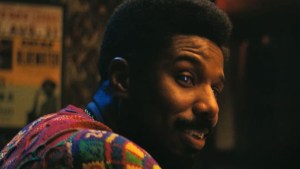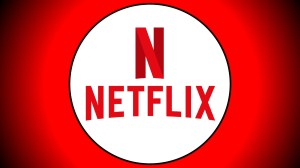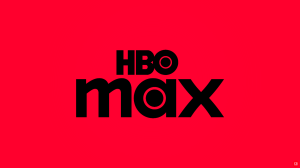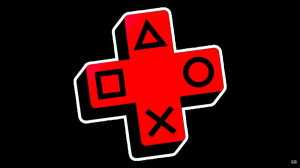Arrow will end tonight, with a heartfelt finale and a final farewell to Oliver Queen (Stephen Amell), who became something else and saved his city after five years in Hell and eight seasons on The CW. There will likely be a lot of sentimental write-ups of the finale and rose-colored looks back at the series — and we’re here to tell you that it deserves every bit of the love that it’s going to get in the coming days and weeks. Arrow, while (like its heroes) never perfect, was a smart, fun, and ambitious show that stretched the barriers of what grounded, gritty comic book adaptations could do on television while also jump-starting a revolution in the way casual viewers perceive superhero shows.
Videos by ComicBook.com
At present,there are more than a dozen mainstream DC and Marvel shows currently in production or on the air. It is strange to think back to Arrow‘s premiere in 2012, when comic book shows were fairly rare. Yes, Iron Man and The Dark Knight had ushered in a new era of superhero films — and of course, Smallville had opened the door to big universes on TV in a way that previous shows like Batman and Lois & Clark: The New Adventures of Superman never did — but TV was still a very different place.
When Arrow launched, it had something of an uphill battle: Stephen Amell was at a disadvantage because he was playing Oliver Queen, a character who mainstream audiences only really knew from Smallville. Rather than trying to bring back Justin Hartley to the role, executive producers Greg Berlanti and Marc Guggenheim went in a very different direction. That left Smallville fans disappointed and frustrated, and their complaints would continue to be heard — albeit with reduced volume — for most of the show’s first season.
At the same time, abandoning the look and feel of the Smallville Green Arrow seemed especially strange because late 2011 — just before Arrow premiered — saw The New 52 debut in the comics, with a costume for Green Arrow that more or less adopted the look of Smallville. It seemed like maybe nobody at DC had any idea what was going on with Arrow.
It also seems almost unbelievable now, but some fans were skeptical of producers Greg Berlanti and Marc Guggenheim’s involvement, which would have been understandable enough: a year or so before Arrow hit the airwaves, executive producers Berlanti and Guggenheim had been two of the credited writers on a critically-panned film adaptation of Green Lantern. The pair, Guggenheim later revealed during a Comic Con International panel for his 2014 novel Overwatch, had requested that if their pitch for a Green Arrow pilot, then called The Hunter, did not go forward, the general public would never even find out they pitched on it.
It’s from that place that Arrow managed to fundamentally transform the way fans — and studios — saw comic books on television. The series was the foundation on which a sprawling, interconnected universe of TV has been built, including The CW’s two highest-rated shows.
There were external factors that absolutely played a role; it is not as though Arrow is Sesame Street or some other series that transformed the medium itself. The success of Smallville gave The CW faith in the source material, while the box office success of Marvel movies and Christopher Nolan’s Dark Knight Trilogy — a major influence on Arrow — encouraged the entertainment industry as a whole to be more receptive to superhero TV. Advances in visual effects technology also made the shows — which tended to cost a lot of money and still not look especially good — to be made more cost-effectively and to look more convincing.
Berlanti and Guggenheim were obviously aware of all of these factors while pitching and later crafting Arrow. But at the same time, there were a lot of factors that contributed to Arrow‘s success which were unique to the series itself. First of all, it’s worth noting that eight years after the launch of Arrow, Greg Berlanti is arguably the most successful producer in television, with a record number of shows on the air. He has also gone from somebody fans scoffed at because of Green Lantern to the obvious choice for any new DC project that enters the TV development pipeline. Guggenheim, similarly, has proven himself to be an irreplaceable part of Berlanti’s team, writing a number of the Arrowverse‘s most popular episodes and serving as showrunner — first in a de facto capacity and later officially — of the ambitious and exhausting multi-show crossover events.
Those crossover events are the TV equivalent of an Avengers movie: they are the ultimate expression of the shared universe that Arrow and its spinoffs — The Flash, DC’s Legends of Tomorrow, Supergirl, Batwoman, and more — inhabit. That universe was built meticulously, and carefully, but piecemeal. While some shows were in development for longer than others, and enjoyed the additional planning time that offers, there was never (at least that we know of) a ten-year plan to get a Superman and Lois show on the air while Shadowhunters star Kat McNamara takes on Oliver Queen’s hood.
That meant that in order to feel organic, the universe had to build on existing structures. The biggest risk, obviously, was the one that paid off the most: introducing true super powers into the world of Arrow with “The Scientist,” the season two episode that introduced the world to Grant Gustin’s Barry Allen. Initially just a nerdy CSI who had a crush on Felicity (just like literally everyone did at that point in the show; it was hard not to), Barry was struck by lightning in the episode’s final moments of the next episode, “Three Ghosts,” setting up a pilot for The Flash, which Gustin would topline for the following season. It was an immediate critical and ratings hit, becoming The CW’s highest-rated new show in years and maintaining an iron grip on its place at the top of the network’s lineup.
Even as the universe around it began to expand and explode, Arrow managed to retain its own visual style and unique personality. It was a challenge, no doubt, to set up a world where there were time-travelers and aliens while still feeling like a grounded story about a small group of people standing against corruption in their city was the center of that world. There were hiccups from time to time, but in general it worked very well.
Arrow‘s chapter of the “Invasion!” crossover, in addition to being something of a template for the show’s hour of “Crisis on Infinite Earths,” exemplifies how Arrow was able to keep simple, human conflicts — questions about morality and mortality — at the forefront in a world full of gods and monsters. Offered a false utopia by the aliens at the center of the story, Oliver and his team had to make the choice to sacrifice their own happiness for the good of those around them. It’s what makes Oliver both a hero and a good man, and it’s why his story resonates with so many people in the audience even when he seems to be a grumpy bastard with an archaic weapon standing alongside Supergirl and The Flash.
A lot of that is the writing. A lot of it is the performance by Stephen Amell, who delivered an iconic and believable version of Oliver Queen, a character who had only ever been treated like a supporting character outside of comics. Elevating characters out of also-ran status and making them fan-favorites was something Arrow has been good at all along — and it will ultimately leave a lasting impact on TV, film, and comics that feature DC’s characters. You could count on one hand the number of people who cared about Felicity Smoak or Damien Darhk before the Arrowverse came along. And, in all of those cases, it is as much or more the casting as the writing or even the core of the characters. Very little of what makes Felicity appealing in her TV form, after all, came from Gerry Conway and Rafael Kayanan.
Arrow also deserves a lot of credit for raising the standard for action scenes in superhero shows. While fighting is a big part of superhero storytelling, it never seemed as though stunts and fight choreography on Smallville or Birds of Prey could hold a candle to Game of Thrones or even Buffy the Vampire Slayer at its best. James Bamford, who directed tonight’s finale and many of the best episodes along the way, began his time with Arrow as a stunt coordinator, and it seems very likely that he will be directing feature films now that the series is over. As much as anybody else, Bamford set the tone for what audiences think of when you mention Arrow, and his commitment to quality in stunt work and action beats has made the show one of the most dynamic things to watch for the last eight years, and kept “Walmart Batman” feeling important and like he can hold his own in a world where they have Black Lightning and Superman.
It’s easy enough to look at the market — there are superhero movies everywhere, and visual effects are getting better all the time — and dismiss much of what Arrow has accomplished on the grounds that somebody would have done if if they didn’t. But that’s not just intellectually dishonest but it also ignores the many, many things that went into making Arrow a huge success. Even with a bull market for superheroes and visual effects better than ever, a disastrous first year of Arrow could have scared everyone into thinking that superheroes only work in the movies — a piece of conventional wisdom that dogged plenty of other shows before this. Instead, it was a smart, charming, good-looking show performed by smart, charming, good-looking people who made you want to tune in again and again. They used the IP well, as opposed to so many shows before that had more or less just tacked villain names lazily onto a random thug of the week, and began the difficult, slow, and piecemeal process of building what is now known as the Arrowverse.
After tonight, Arrow is gone — but it leaves behind a legacy that almost no other show can match. It deserves every nostalgic, rose-colored word of praise it’s going to get because without it, the comics-on-TV landscape could potentially look very, very different today.









